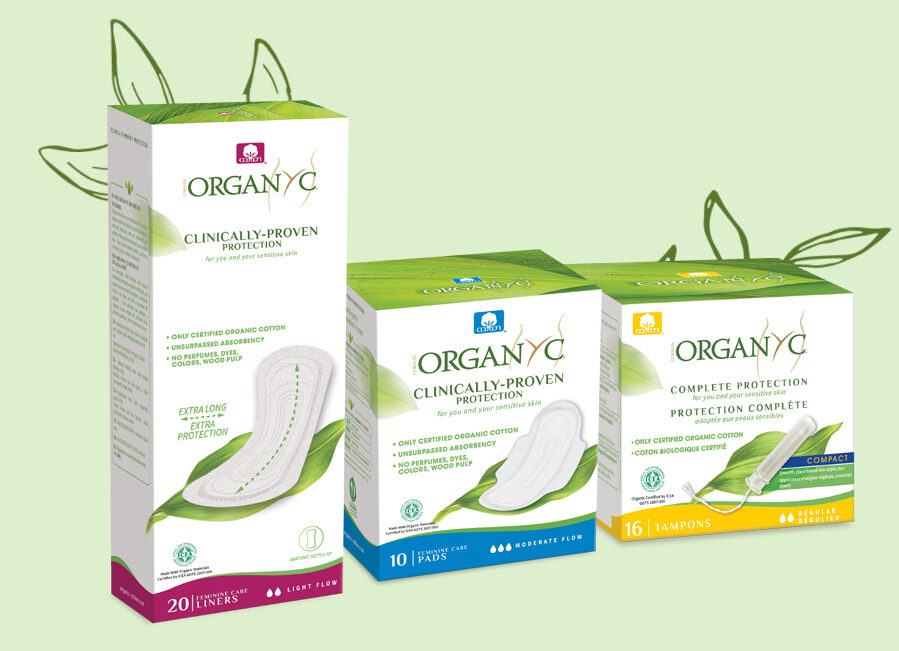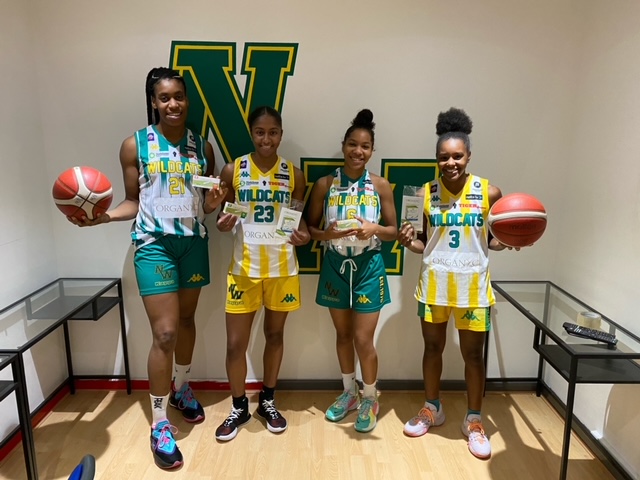Is there really any difference between organic chicken and non-organic chicken?
Written in collaboration with Pravera
Did you know that, throughout our lifetime, we use around 11,000 disposable period products? That’s a lot of period products.
Considering pads and tampons sit so close to our skin, or inside our body, have you considered what menstrual products are made of? Do you choose organic period products? Or opt for the the brand you’ve always used, without thinking too much about it?
We’ve been doing some research and what we’ve discovered is pretty staggering…
What’s really in pads and tampons?
Conventional tampons and pads are more toxic than most of us realise. They contain traces of pesticides and insecticides (used in the farming of non-organic cotton). There’s also chemicals like chlorine (used for bleaching). Plus, fragrances are added (which can interfere with the vagina’s pH balance and the balance between good and bad bacteria, leading to irritation and infection – but as long as we smell good, right!?). They also contain a surprising amount of plastic.
Shockingly, menstrual pads can be made of up to 90% plastic. Considering how many menstrual products we use – and throw away – in our lifetime, that’s a lot of plastic products winding up in landfill, blocking our sewers and floating in the oceans.
We couldn’t put it better than Helen Lynn, ‘environmenstrual’ campaign manager at the Women’s Environmental Network (WEN), who is quoted by plastic pollution campaigners City to Sea:
“It’s staggering to think we still do not know exactly what menstrual products are made of or what toxic chemicals they might contain. Independent research has detected the presence of toxic chemicals which can mimic our hormones ie Endocrine Disrupting Chemicals (EDCs) or are linked to cancer or reproductive disorders. And detected plastics which can leach toxic chemicals and ultimately pollute our environment and harm wildlife. They have no place in products used daily in one of the most absorbent of places, our vaginas.”
What options are there for better periods?
So, what options do we have? What are the choices for those that don’t want to switch to a menstrual cup or reusable pants?
We wanted to find out more about healthier, more environmentally-friendly disposable period product options. Are organic period products really any better? Do they work as well? And, if so, how do you differentiate between the increasing number of organic period products lining the shelves?
We got the lowdown from Organyc, an Italian family-run business that started out as a medical textiles manufacturers in 1947 and have since evolved into a global wellness brand, with sustainability at its heart. They have been pioneering organic period products for 15 years. Their pads are 100% certified organic cotton inside out – ‘no perfume, dyes and other junk’ – and are clinically proven to reduce intimate skin irritations.
They’ve recently launched the campaign: ‘You deserve better. Period.’ So, we spoke with Organyc’s CEO, Giorgio Mantovani, to get the lowdown on what this really means.
Let’s start with the basics. What’s in an organic pad or tampon? And what’s the difference with non-organic products?
Standard period pads contain up to 90% plastic, which can make intimate areas sweat, become itchy and irritated. Our Organyc pads and tampons are made from 100% certified organic cotton only, which is breathable and much more comfortable for the wearer. They are also fragrance free, are not bleached and there are no pesticides in the cotton. Even the back of our pads is natural. It’s made of cornstarch.

There’s an increasing number of organic products on the market. Are they all better for you? What’s the difference between them?
There are some great organic brands. There are also some that are great at marketing themselves. They say you shouldn’t judge a book by its cover. When it comes to period products, you shouldn’t judge a pad by its cover either.
I’ve seen brands advertise their period products as ‘organic’, when really they only use an organic cotton cover; but the rest of the product is not organic cotton, or even cotton.
It’s a concern that food and cosmetic manufacturers are required by law to list the ingredients of their products on their packaging – and some products have to list possible irritants – but period product manufacturers don’t have to do this.
So, we ensure all our range is certified organic.
In terms of Organyc and your business, have the products always been organic, or has this been a shift in mentality?
Organyc is a fairly new product for us. Since 1947, we have been manufacturing medical textile supplies, producing wound care products like cotton gauze and cotton swabs.
Then, around fifteen years ago, pharmacies – our main customers – were telling us about women suffering from discomfort because of period products. These women were buying creams and drugs to try and solve the problem or using our cotton gauze or wool to create a protective in-between layer between their skin and the pad. So, we came up with the idea of producing 100% cotton menstrual products for those with sensitive skin.
We quickly realised, if you have sensitive skin and have to use period products all day and all night, then you really want to make sure that you have the softest, most natural chemical-free option against your skin, right? That’s why we decided to go organic.
Is there any compromise on efficacy when it comes to using organic materials?
Cotton is naturally very absorbent. We’ve found that not only does a 100% cotton pad perform just as well, if not better than, a conventional pad that contains plastic, it is also over 10 times more breathable and softer, helping your skin to remain dry and healthy.
How are organic period products better for the environment?
Organyc started as a product to solve a specific sensitive skin issue, but developed into a sustainable adventure because we realised that conventional period care products have substantial environmental issues related to their materials and their end of life.
Since most contain a lot of plastic, when we throw them away they remain in the environment for a long time – either in landfill or floating in the ocean because they don’t biodegrade.
The Marine Conservation Society estimates that sewage related debris (including period products) makes up around 8.5% of Britain’s beach litter. Around 18,050 pieces were found in 2017. And that’s just the UK. This is a global issue.
Can I ask you about the lifecycle analysis? So, in terms of the materials you use, how long does it take to biodegrade?
At Organyc, we don’t use any plastics. So, everything comes from natural renewable resources.
We tested for compostability in industrial compost conditions with two leading labs doing the compostability testing. In under 90 days, 95% of the product was composted.
Of course, that technology is still only available in some areas, at the moment.
So, as a user, when I finish using my pad or my tampon, what do I do with it?
You have two options.
Your first option is to check if your municipality allows you to put your period products in your foodbin. You can technically throw your pad in there and it goes together with your kitchen food waste.
Otherwise, you have to throw it in the general waste. And, it takes a lot longer than 90 days, but it will eventually biodegrade.
In the UK, a lot of the conversation is heading towards reusable rather than disposable period products. What is your position on that?
Of course, reusable products like the menstrual cup are, from an environmental point of view, a great sustainable option. But, from a user point of view, not everybody really loves the idea nor do all users enjoy the product experience.
The fact is, disposable products are still very popular, and so we have chosen to create the best solution we can for this category.
So yes, we’re disposable, but we also have a strong respect for the earth.
Giorgio, speaking frankly, you don’t menstruate. How do you know what makes a great product for those of us that do?
We could not have developed such a great line of products without the knowledge and experience of women, that’s for sure. Around 65% of our team are women. So, obviously, they are the driving force behind our choices.
I also have to mention one other important woman behind the project, which is my wife. She explained to me things that may seem obvious, but weren’t to me. For example, why wings are important on pads. Or why the size of the tampon is related to flow.

Talking about periods can be quite a taboo subject. You, clearly, talk about them all the time. What have you learnt about how to talk about periods?
When we talk about period care we need to do it with respect. By this we mean, we need to talk about periods clearly and directly because it’s something that happens every month for about half the population. It’s natural.
Respect is the word at the heart of our company culture. In fact, “expect respect” is our tagline. Our products have respect for women’s skin because they are soft and natural, respect for their minds because we’re transparent in saying what we’re made of, and respect for the environment, because we use sustainable materials.

